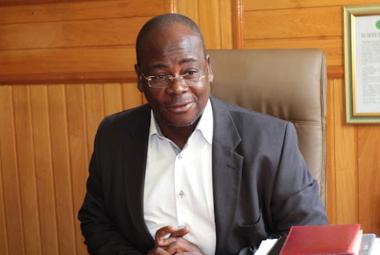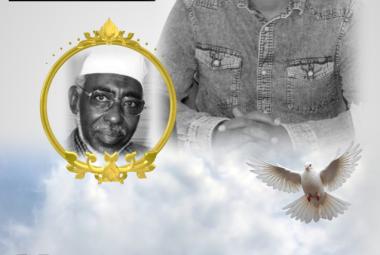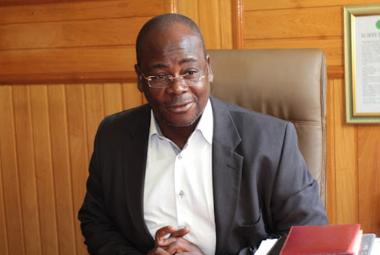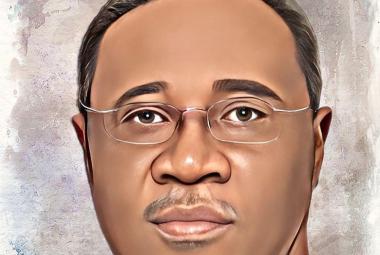This column was published in July 2016. The Tunisian president's recent remarks make it more topical than ever.
It is understood that slavery is one of the worst things to happen to the African continent. We shudder with indignation every time we think of all these beings, our ancestors, torn from their land, our land, transported in inhuman conditions to another continent where they were reduced to a rank worse than that of animals. We tremble with anger reading the "Black Code" enacted by France during the reign of Louis XIV, to govern slaves and who considered them as mere objects. Yes, the slave trade has emptied the African continent of its most able-bodied arms and it is not for nothing in the situation of generalized poverty that our countries are experiencing. We have every reason to blame America and Europe for building their economies with the strength of the arms of our ancestors. Today we claim hard cash compensation for the harm done to us.
What is strange is that our anger is directed only against Europe and America, and we forget knowingly that slavery was also the fact of those whom we call our cousins, when we share the same galleys in Europe , namely the Arabs. Our cousinhood stops in Europe, when we face the White, when we face the same racism from Europeans, but it is different when we are in the Arab world. From Mauritania to the Sultanate of Oman via Morocco, Tunisia, Sudan, Saudi Arabia, slavery was practiced on a large scale for centuries. The consequences of this trafficking are the presence, nowadays, of large black populations in these countries, and the discrimination of which they are still victims. The word commonly used to refer to Black Africans in many Arab countries means "slave". In a country like Mauritania, which is in West Africa, next to Senegal, slavery was not officially abolished until 1981. And in 2014, that is to say two years ago , the NGO Walk Free estimated that there were still 4% slaves, or about 150,000 people within the country's population. It is true that on August 13, 2015, the Mauritanian parliament had adopted a law considering slavery as a crime against humanity. However, on August 20, 2015, that is to say a week later, it was Biram Dah Abeid, an emblematic figure in the fight against slavery, who was sentenced to two years in prison, for having called for an end to slavery. 'slavery. In 2000, when Muammar Gaddafi was campaigning for the creation of the African Union, the sub-Saharan blacks who lived in his country were victims of terrible pogroms in the deafening silence of African heads of state and intellectuals. When Gaddafi fell, Black Africans living in his country were massacred by the country's rebel forces. And since the terrorist organization Islamic State took over part of the country, it's been hell for the black Africans who live there. And many Africans who take makeshift boats to try to cross the Mediterranean at the risk of their lives do so to escape this hell. A few months ago, all Black Africans in an Algerian town were victims of another pogrom.
All this information is regularly given in the press, but none of this moves us. We have never organized demonstrations to protest against slavery which is still practiced in a country like Mauritania. Despite the practice of this abomination, this country was a member of ECOWAS until it decided to leave it, to join the Arab Maghreb Union. He is still a member of the African Union, which has never asked him to make even more effort in his fight against slavery. We have never demonstrated against the discrimination Black people face in Arab countries, as we did during the Apartheid era. We have the impression that for us Africans, what is happening in these Arab countries, some of which are on our continent, is a kind of local folklore that we must not interfere with. Yet it is about the dignity of human beings, our dignity as Africans, who also suffer this discrimination and vexation when we go to these countries.
We do not doubt for a moment the will of the governments of these countries to put an end to these medieval practices deeply rooted in mentalities. We would help them better by also showing our indignation from time to time, by putting pressure on them, as we did during the apartheid era in South Africa. But I believe the truth is that our outrage depends on that of the West. When he was outraged at the slavery he himself had practiced, we were also outraged. And in the process, we asked him for a little money, as if we recognized that we had sold our ancestors at too low a price. The same was true for South Africa. We accompanied the indignation of the western world. For the moment the West has not yet been indignant against Arab slavery. Neither do the Arabs. So we wait.
By Venance Konan
*This article has been translated from French into English by Marcus Boni Teiga




















